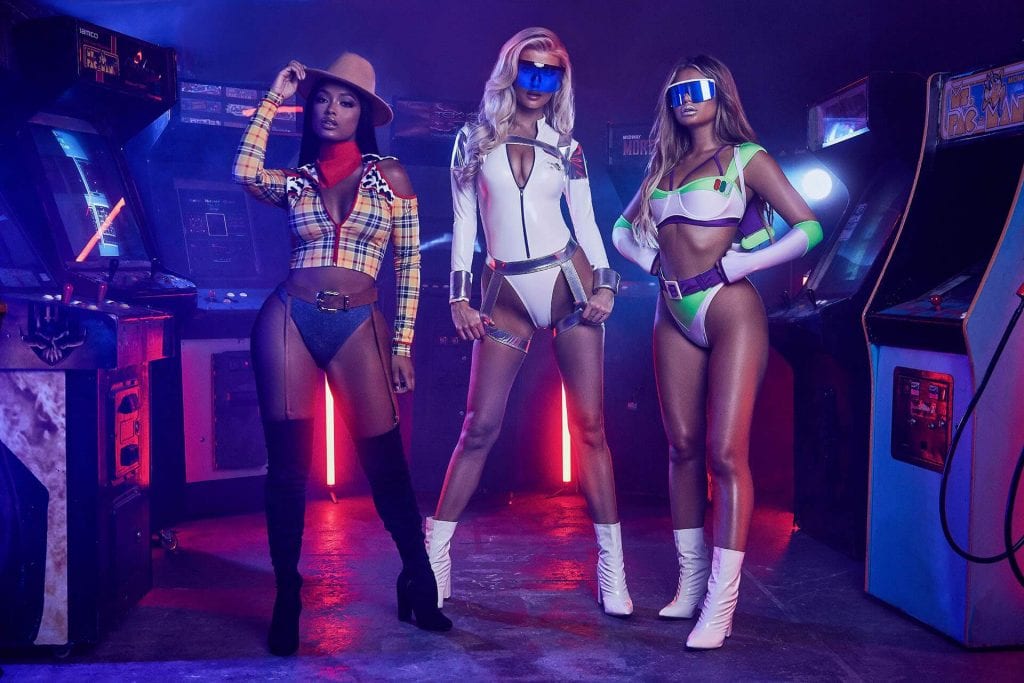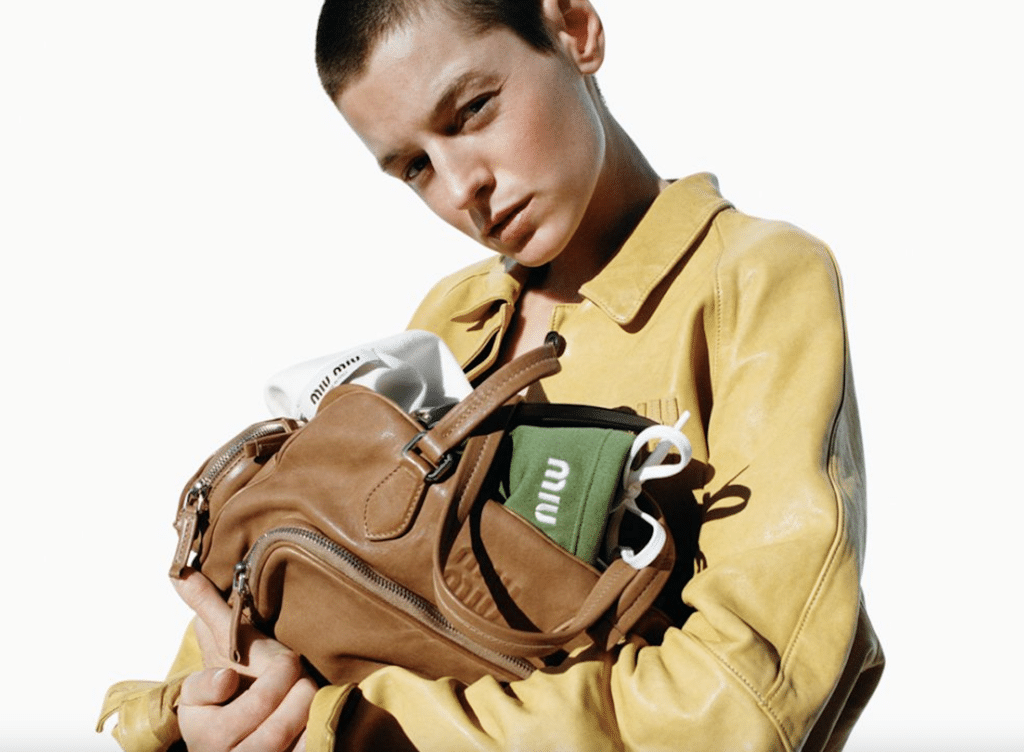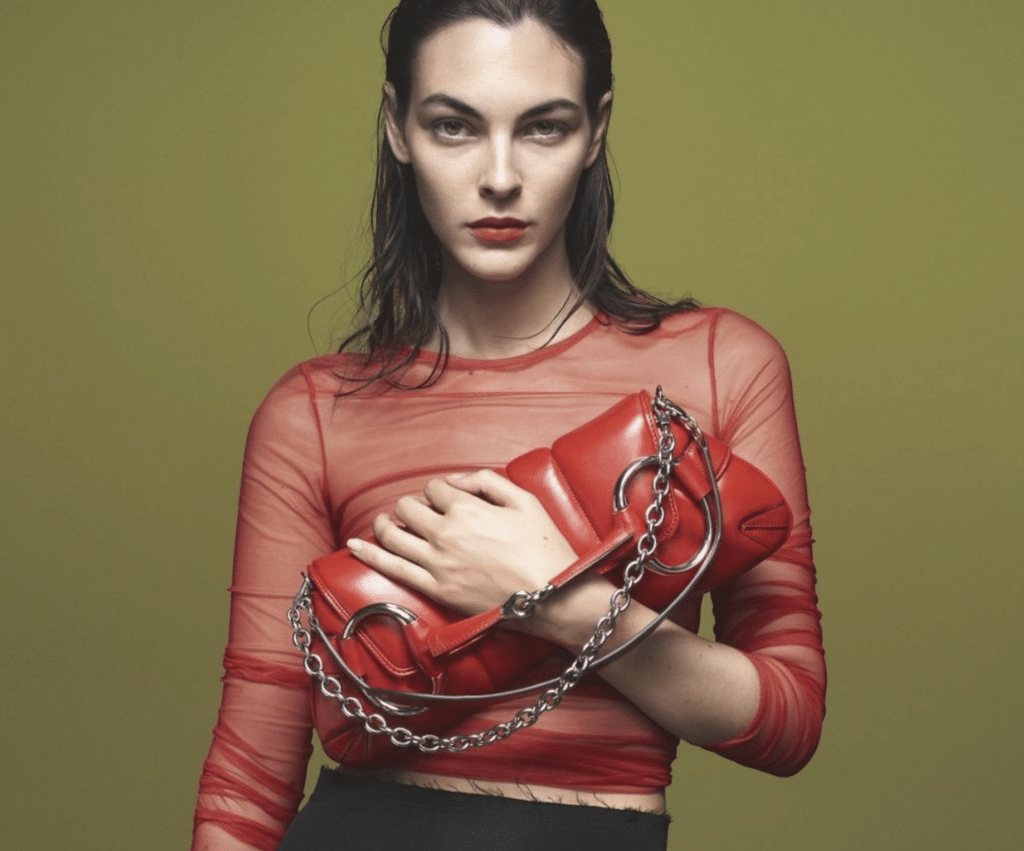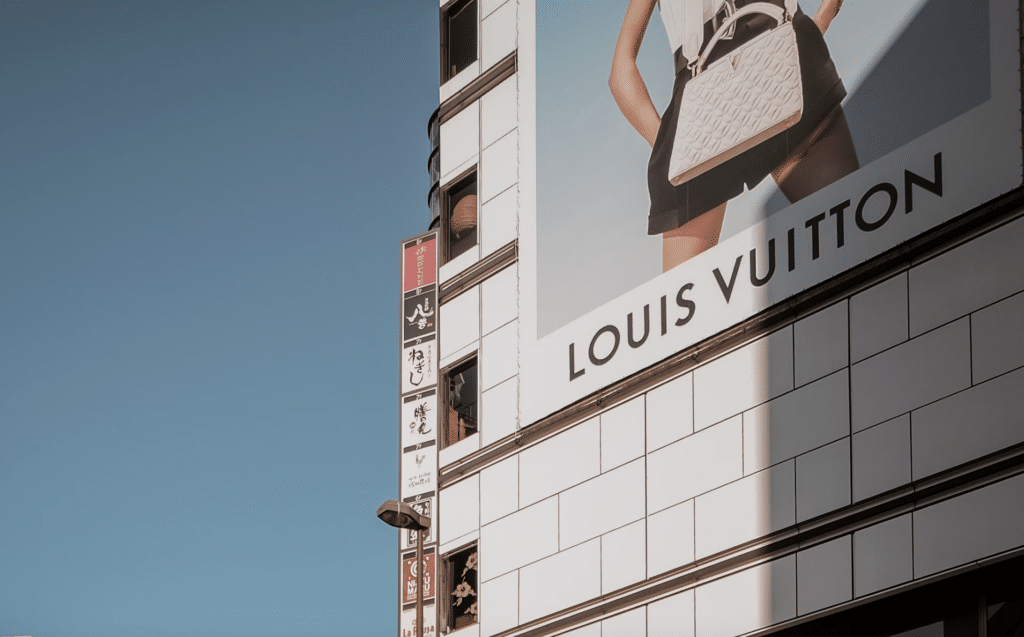After being sued last year by Versace over a Halloween costume that looked a lot like the jungle print dress that Jennifer Lopez wore to the Grammys in 2000, Fashion Nova is on the receiving end of a new lawsuit – albeit over different Halloween costumes. This time around, Playboy is suing Fashion Nova over certain bunny costumes that it says the Southern California-based fast fashion company has marketed and sold in an attempt to “piggyback off of the popularity and renown of Playboy’s iconic Bunny Costume®, which Playboy has cultivated for more than six decades.”
In the trademark infringement and dilution complaint that it filed in the U.S. District Court for the Central District of California on Tuesday, Playboy asserts that “throughout the peak of the Halloween costume season,” Fashion Nova has been “prominently featuring” and selling costumes that look a bit too much like its trade dress-protected bunny costume, including the “iconic bunny ears, tail, ribbon name tag, wrist cuffs, corset, and bowtie collar.” (Playboy’s various enduring registrations for the costume specifically list the trade dress as consisting of “a three dimensional bunny costume worn by a woman,” which “includes a corseted bodice, bunny ears worn on the head, a bunny tail on the back of the bodice, a name tag on the front of the bodice, wrist cuffs and a bow tie collar.”)
More than merely selling similar-looking costumes, Playboy claims that Fashion Nova goes further in its “attempt to confuse and mislead consumers” into believing that there is an association between its costumes and the Playboy brand (when there is not) and Playboy, and to benefit from such a presumed affiliation. The fast fashion company is “also advertising some of its [costumes] using the description ‘Bunny of the Month,’” which Playboy argues is “a clear and unauthorized reference to Playboy’s famous PLAYMATE OF THE MONTH trademark, which [it] began using in 1954 in connection with the Playboy magazine.”
Such unauthorized use of a lookalike costume and of similar trademarks for its own marketing purposes is, in fact, likely to confuse consumers, Playboy argues, given the fame of the costume. “Over the past 60 years,” Playboy claims that the Bunny Costume “has become a staple of the Playboy brand.” The costume has been worn by the likes of “Dolly Parton, Gloria Steinem, Kate Moss, and even the comedian Flip Wilson,” “can be found in the collection of the Smithsonian,” and was “the first service uniform registered with the United States Patent & Trademark Office.”
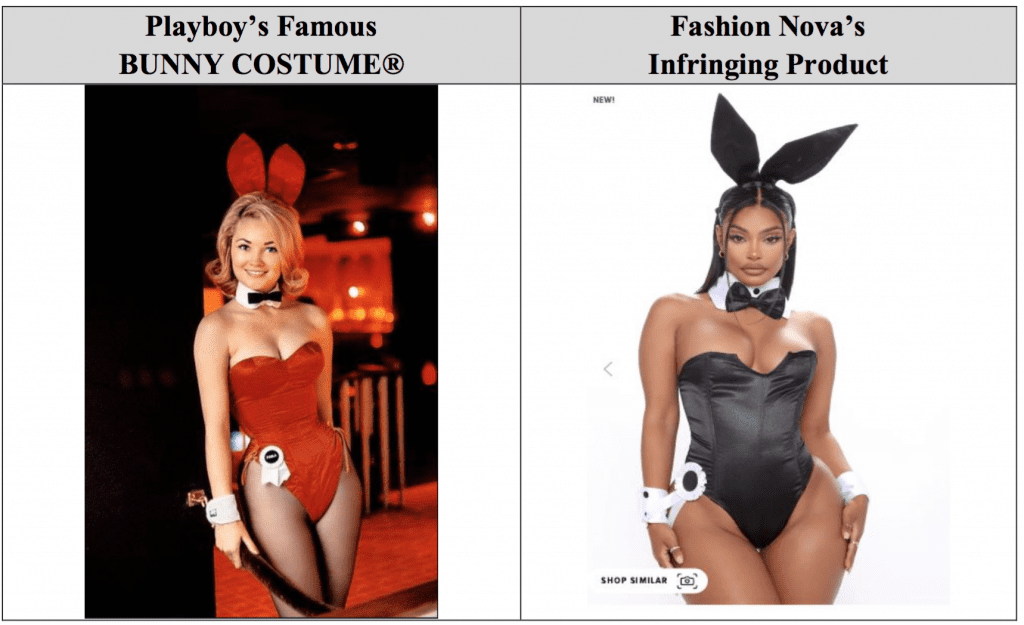
Playboy claims that “from its inception decades ago, and throughout its continuous use, the Bunny Costume® has been non-functional and has served to distinguish Playboy’s goods and services from those of its competitors and to identify Playboy as the source of those goods or services.” In other words, when consumers see the bunny costume, they link it to a single source, thereby, enabling the costume to serve as an indicator of source – i.e., a trademark – of the Playboy brand, which Fashion Nova has infringed.
By selling the lookalike costumes, Playboy alleges that Fashion Nova has, in fact, caused confusion among consumers, pointing to the language used by members of the public who purchased Fashion Nova’s costumes and then listed them on resale sites. Such product descriptions list the costumes as “Playboy Bunny Costume,” “Fashion Nova Pink Satin Playboy Bunny Suit Costume Halloween,” and “FASHION NOVA playboy bunny NEW costume,” per Playboy.
With the foregoing in mind, and given its “willingness to copy the designs of other companies, piggybacking on their creative efforts to boost [its own] bottom line” (that is one of the exact same lines that was used in the complaint that Versace filed against Fashion Nova last year), Playboy claims that Fashion Nova is “diminishing the distinctiveness of [Playboy] trademarks insofar as they reduce the exclusivity that the trademarks carry by virtue of their association with Playboy.” Beyond that, Fashion Nova’s “uses of the trademarks also dilute the value of the trademarks by associating them with Fashion Nova, a purveyor of inexpensive ‘fast-fashion’ apparel.”
In that same vein, Playboy also takes issue with the shoddy workmanship of Fashion Nova’s costumes, noting that “Fashion Nova’s failure to implement appropriate quality controls further diminishes the value of the trademarks, as evidenced by complaints from its own consumers such as ‘[r]uns too small,’ ‘[t]hreading was loose,’ and ‘it’s nothing like the picture.'”
Setting forth claims of federal and common law trademark infringement and dilution, and unfair competition, Playboy is seeking monetary damages, as well as injunctive relief. It notes that it previously sent a cease and desist letter to Fashion Nova over the allegedly infringing costumes, but as of the date of filing, claimed that it had not “provide[d] any response, and by all accounts continues to market and sell the infringing products.” Playboy claims that the fast fashion company’s failure to respond is an intentional delay tactic designed to avoid taking responsibility for its infringing conduct, while continuing to sell and profit from the infringing products at a time – immediately before Halloween – when demand for the Bunny Costume® is at a peak.”
This appears to be one of Playboy’s biggest costume trade dress-specific cases to date, if not its only costume trade dress case to date. It is worth noting that a sizable number of companies seem to be using the “Playboy” trademark to market similar – and likely unlicensed – Halloween costumes, raising questions about whether the term “Playboy” is at risk of becoming something of a descriptive term to refer to a style of a bunny costume complete with bunny ears, a bow tie, a collar, cuffs and a fluffy cottontail and/or Hugh Hefner-esque loungewear, namely, a maroon velvet robe, silky black trousers, and smoking slippers, as opposed to a single source of them.
*The case is Playboy Enterprises v. Fashion Nova, Inc., 2:20-cv-09846 (C.D.Cal).




